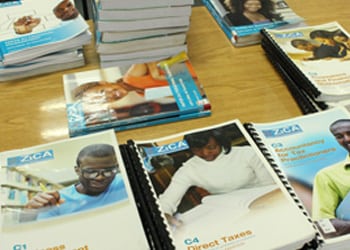The Practice Review Department of the Institute falls under the Standards & Regulations Directorate. Its existence is enshrined in the Accountants Act No. 13 of 2008 (as amended) under Part IV, section 31 (1).
Globally, the International Federation of Accountants (IFAC) to which ZiCA is a member body has Statement of Member Obligations (SMOs). The SMOs are used as a framework for the development of a strong and modern accountancy profession. They provide clear benchmarks for Professional Accountancy Organisations (PAOs) or members, in their efforts to adopt and implement international standards and best practice. They assist current and potential IFAC members to ensure the highest level of performance by professional accountants. Further, the SMOs form the basis of the Member Body Compliance Program. One of the key values of the Compliance Program is to establish an understanding and appreciation of differing regulatory frameworks, national achievements and stages developments of PAOs around the world.
In view of the foregoing, there is need to understand that a distinguishing mark of the accountancy profession is it acceptance of the responsibility to act in the public interest. In the recent past, this has seen the accounting profession acquire a reputation for integrity, objectivity and competence through its many years of services to clients, employers and the public at large. Maintenance and enhancement of this reputation and public confidence is the challenge of the 21st century accountancy profession.
Thus in the quest to achieve the aforementioned, the Institute has set out to develop and implement various initiatives that would assist in monitoring the quality of the professional work of its members. One such initiative is the Audit Quality Control Monitoring system or Practice Reviews for its members in practice. It is designed to provide mechanisms for assessing the existence and effectiveness of the quality control policies and procedures for assurance engagements carried out by the Institute’s members in public practice.








